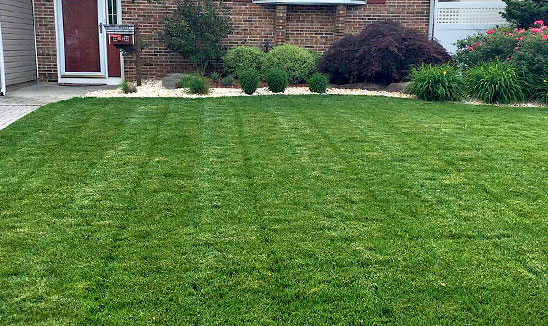Most homeowners know about Bermuda grass as one of the most resilient turf varieties one can grow if the hardiness zone and other environmental conditions allow. Some people go that far to consider Bermuda grass as a weed sometimes, as it can aggressively try to conquer territory and resources from your flowerbeds or other areas on your property. However, despite its resilience, Bermuda grass can fall victim to seasonal and perennial weeds. Broadleaf weeds can try to take over your Bermuda lawn in spring, while grassy weeds are most common in summer months and need specialized post-emergent weed control. Today, our lawn treatments experts in Chesterfield MO are here to offer you some examples of best practices when it comes to Bermuda grass weed control.
What Should You Do for Proper Bermuda Grass Weed Control in Summer?
One of the first steps to take in summer is to make the difference among different types of weeds that can attack your Bermuda grass in the summer. Crabgrass, annual bluegrass, or common foxtail may indeed look the same for the untrained eye. On the other hand, the best way to control grassy weeds in the summer is to have your local lawn treatments experts in Chesterfield MO assess the situation and plan a long-term intervention.
Among the best practices to implement when it comes to Bermuda turf control, our lawn fertilizer company recommend the following:
- Recurrent lawn mowing, in full compliance with the scheduled program proposed by your local lawn weed control service providers. As a piece of advice, our experts recommend keeping your common Bermuda grass at 2 inches height and the hybrid Bermuda lawn at 1.5 inches in height.
- Regular fertilization, according to the proposed annual weed control plan tailored by your local lawn treatments specialists in Chesterfield, MO.
- Proper irrigation, following the advice of your lawn maintenance service provider.
Such practices are efficient in keeping weeds at bay, but may not be enough. Our local lawn treatments professionals in Chesterfield MO tailor their blends of herbicides and weed killers. You should know that using a generic crabgrass killer, for instance, for a hybrid Bermuda grass lawn might kill the other grasses and plants you grow on your property.
When it comes to lawn fertilization, weed control, and keeping your turf weed-free, trust our local lawn treatments experts in Chesterfield MO to assess the situation and come up with a long-term plan to keep weeds away from your beautiful grasses.











